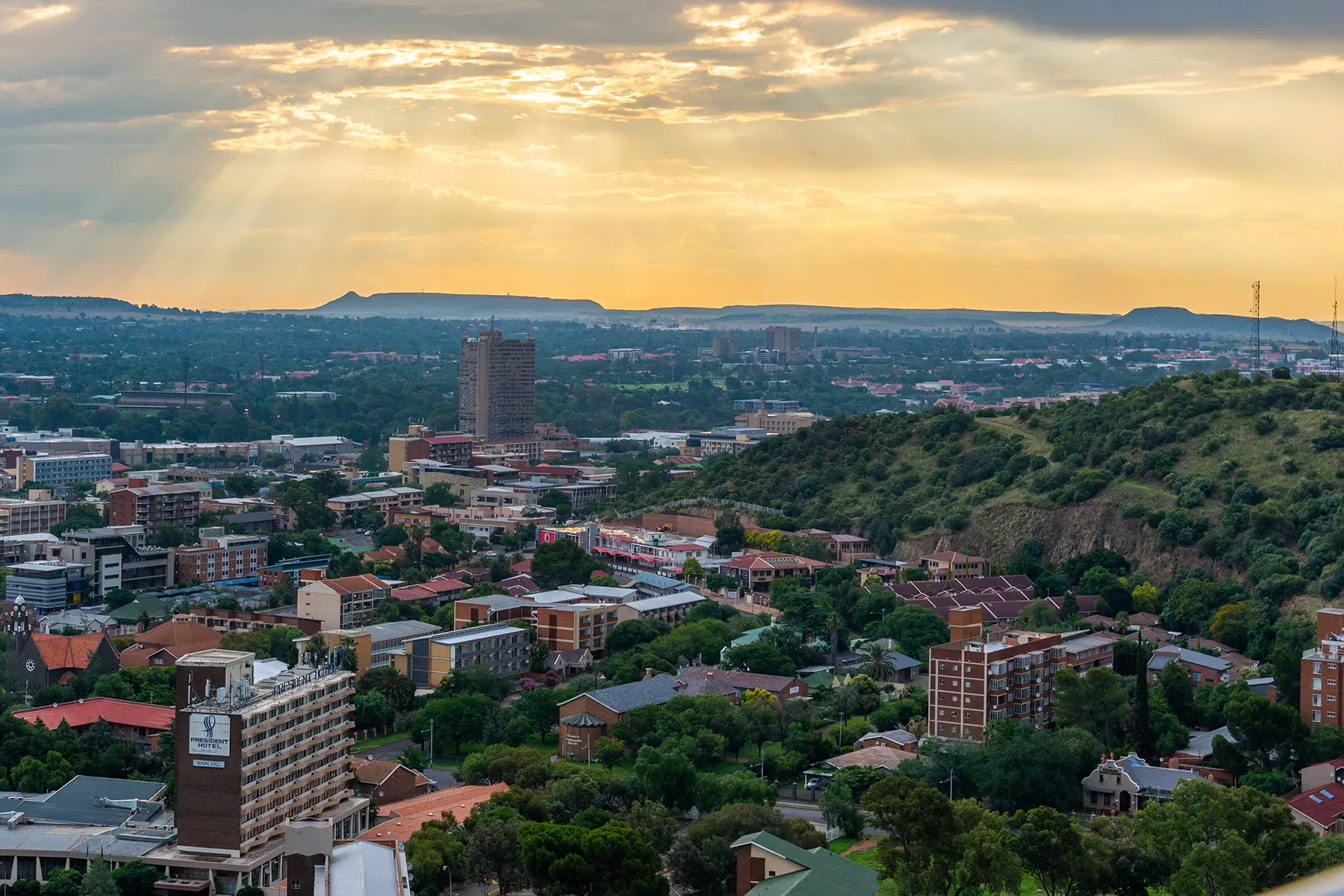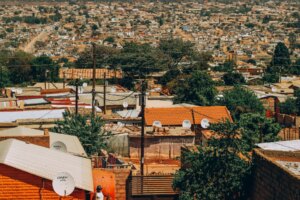When relocating, you would need to apply for a visa, look for a job, set up a bank account, find a new home, navigate the transport system and settle your children into a school. Another of your priorities during your first week in the country is to find a South African SIM card (subscriber identity module) and mobile phone. South Africa has a fast-growing telecommunications industry and a robust mobile network. Most residents access the internet with their cell phones.
Learn where to get a mobile phone and how to access the networks by looking at the following topics:
- The mobile network in South Africa
- Can you use your own mobile phone in South Africa?
- Mobile phone operators in South Africa
- Pre-paid vs. mobile contracts
- Mobile phone plans and contracts
- Pre-paid SIM cards in South Africa
- Mobile phones in South Africa
- South African mobile numbers
- Repairing a mobile phone in South Africa
- Mobile phone laws in South Africa
- How to complain about a mobile phone provider in South Africa
- If you don’t have a mobile phone in South Africa
- Useful resources
The mobile network in South Africa
Like most of the world, South Africa uses the popular GSM mobile network, making it possible to use your international phone. The country has 2G and 3G technology, but most consumers use the 4G LTE network.
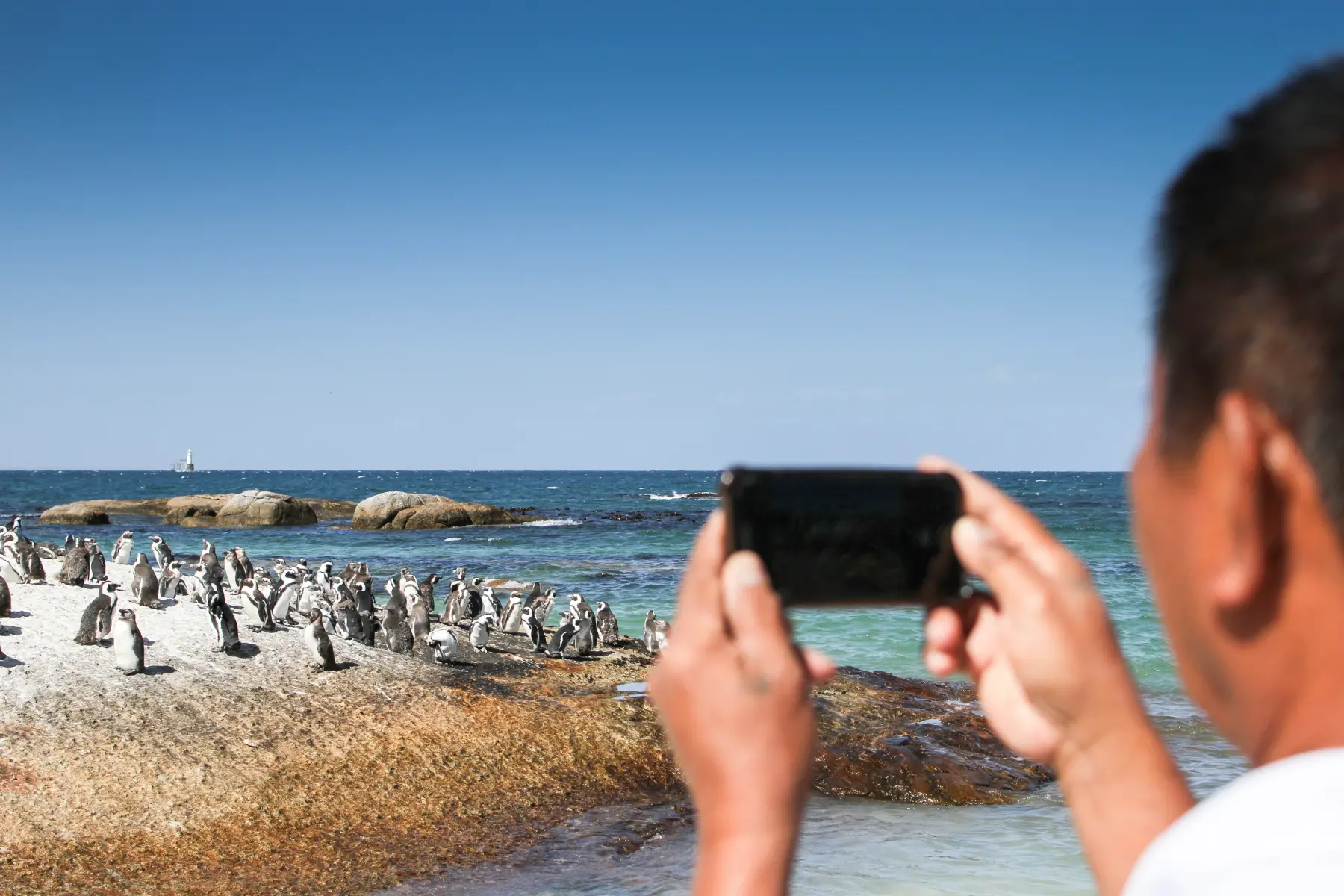
In May 2020, Vodacom launched the country’s first 5G networks in Johannesburg and Cape Town. Mobile coverage is pretty good throughout the country, especially in urban areas. Depending on the network, there is about 80 to 90% coverage across the country. Of course, connectivity is spottier once you get into more rural areas.
Wi-Fi connection
Wi-Fi is readily available throughout South Africa, especially in metropolitans like Johannesburg and Cape Town. Of course, it gets patchier in the countryside. Even without a South African SIM card, it is easy to find a decent Wi-Fi connection across the country. Free Wi-Fi networks are readily available at hotels, restaurants, and cafés. Of course, as anywhere else, only use secure public networks to protect your online data.
The average internet speed ranks 72nd in the 2023 Digital Quality of Life Index, which is one of the best on the African continent. Still, it is not as fast as, for instance, Singapore and the United Arab Emirates. Although local internet prices are comparable to those in the US, Australia, and New Zealand, they are significantly more expensive than in Europe and Asia.
Can you use your own mobile phone in South Africa?
You will be happy to know you can use your existing handset when you move to South Africa. Before leaving, check that your phone is compatible with GSM networks. Once you arrive, you need to get a South African SIM card to use your phone locally.
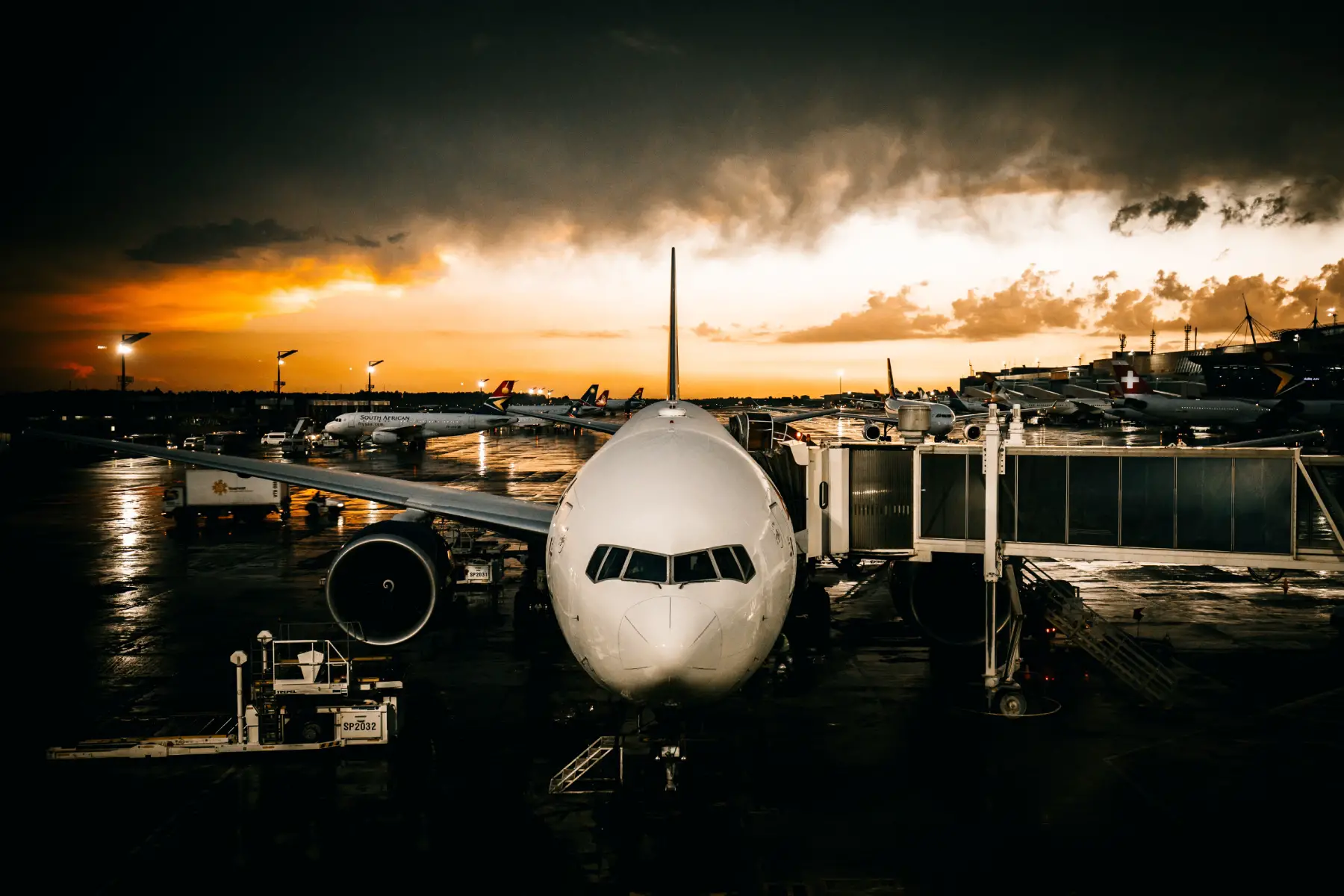
You should also have your phone unlocked from your local service provider’s network. If it isn’t, ask your provider at home to do this. However, many mobile technicians in the country can do this locally.
If you are only in South Africa for a short time, it might be easier to use your data roaming with your home network. However, the rates will be higher, so check with your local provider about these before you leave. Another option can be to buy a cheap phone in South Africa to use while you are in the country.
Short-term visitors also have two other options. B4i travel, which has ties with Vodacom, will allow you to purchase a South African SIM card before you arrive in the country. You can then pick it up when at the airport on arrival. Another option is to rent a phone at the airport through Vodacom or Cell C. These offer 30-day bundles at reasonable rates; useful if you are in the country for a few weeks.
Mobile phone operators in South Africa
There are several mobile phone operators in South Africa, and all of them will be able to set you up with a SIM card or phone. These include:
- Vodacom – owned by UK-based Vodafone; offers phone, data, and SIM-only packages, plus home internet and insurance
- MTN – South African telecommunications company founded in 1994; first local operator to launch a 5G network in 2020
- Cell C – South African mobile operator acting as a disruptor in the local industry by offering lower rates and specials on WhatsApp bundles or pre-paid deals
- Telkom Mobile – majority-private South African telecommunications company offering mobile and home connections and specific bundles for chat and social
Each company offers a wide range of pre-paid South African SIM card bundles or post-paid contracts. You will need to compare the inclusions and prices carefully to determine what will work best for you.
Pre-paid vs. mobile contracts
In 2021, 84% of South African residents used pre-paid mobile services, while just 16% signed a contract, which can be somewhat limited here.
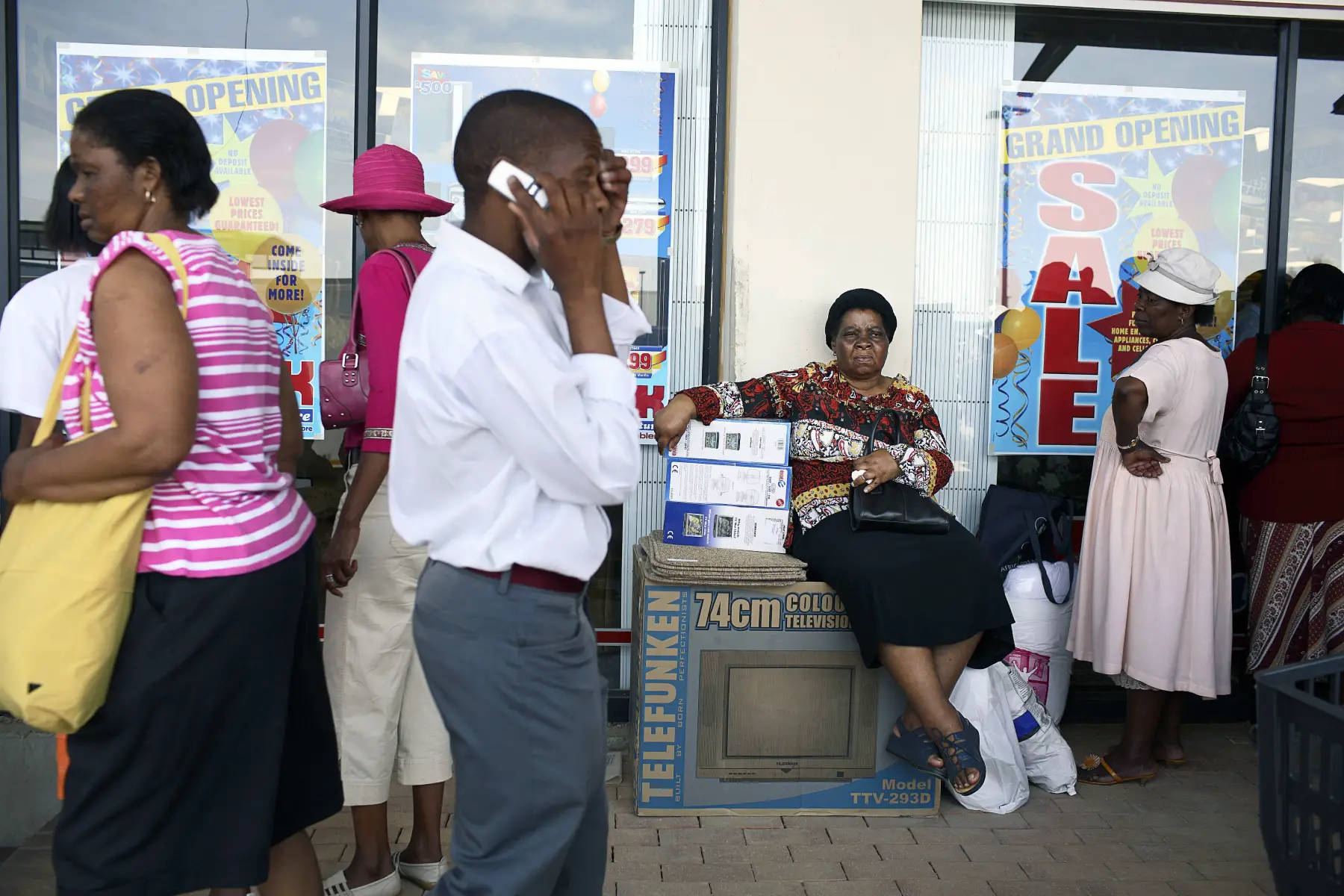
The various mobile operators have created a wealth of add-on bundles and deals for pre-paid services, making them more affordable than the average mobile phone contract. Indeed, getting a pre-paid South African SIM card is the way to go if you already own a phone. However, if you are going to be here for an extended period or are perhaps looking to get a new phone, a contract might be a better option.
Mobile phone plans and contracts
If you prefer to sign up for a contract with your South African SIM card, there will be a variety of phone plans on offer. For example, you can get a data-only plan, a data and voice plan, and even packages that differentiate between peak and off-peak usage.
Most plans will usually include data and voice minutes. Despite their many differences, almost all mobile phone contracts in South Africa are for 24 months.
To give you an idea of pricing for South African SIM cards, here are some plans available on MTN:
| Plan | Services | Cost |
| MTN Mega Gigs XS | 2GB data + 25 min voice | R135/month |
| MTN Mega Gigs XL | 25GB data + 200 minutes | R629/month |
| MTN Mega Talk XS | 500MB data + 100 minutes | R135/month |
| MTN Meta Talk XL | 8GB data + 1500 minutes | R629/month |
| MTN Sky Bronze | 30GB data + 1600 minutes | R839/month |
| MY MYNCHOICE 8GB | 4GB anytime + 4GB night + 22GB extra, data only | R89/month |
You should note that most South African mobile phone contracts will state that charges may increase at any time. As such, you will probably find that during your 24-month contract, your monthly payments go up.
If you are looking to compare phone plans, check out PhoneFinder.
How to get a mobile phone contract
Notably, getting a South African SIM card contract is a bit of a process and involves a fair amount of paperwork. You may not yet have all the required documentation if you just arrived. But, if you have been here a few months, it is possible.

To start, you will need to apply for the plan either online or in person and present these documents:
- Your South African ID or passport
- Proof of residence (usually a utility bill)
- Proof of income
- Bank statements for the past three months.
Once you have submitted everything, the provider will process your application. Usually, this takes three to 10 days because your provider will run background and credit checks. After it is approved, you will receive your SIM card or phone shortly after.
Pre-paid SIM cards in South Africa
Most people in South Africa prefer to use pre-paid SIM cards for their mobile phones. There are numerous types of pre-paid options available, either with airtime, data, or both. In addition, some carriers will allow you to add on certain packs or bundles that give you increased access to social media or communication apps like WhatsApp.
Pre-paid SIMs are also readily available at convenience stores, supermarkets, airports, and mobile stores throughout the country.
Below is an example of the various pre-paid plans and costs available with MTN and Telkom Mobile:
| Plan | Service | Cost | Note |
| MTN Bozzagigs | 5GB anytime + 5GB night | R99 | |
| MTN Combo Offer | 15GB + 400 voice minutes | R399 | |
| Telkom Mobile FreeMe 300MB Bundle | 150MB data + 75MB Whatsapp + 75MB streaming + 50 SMs + 50 Telkom to Telkom calls | R29 | 14 days |
| Telkom Mobile FreeMe 6GB Bundle | 4GB data + 1GB WhatsApp + 1GB streaming + 100 SMS + 500 Telkom to Telkom calls + 100 calls to others | R289 | 61 days data validity, 31 days benefit validity |
Be aware, though, that pre-paid cards usually have short validity periods. Generally, credits will expire within 30 days. However, in some cases, it can be as short as 14 days or as long as 61 days.
Mobile phones in South Africa
In 2018, Pew Research found that 51% of adults in South Africa own smartphones, and an additional 40% have a feature phone (without smart functions). In general, the mobile access penetration rate was 95%.
Smartphones
As in many other countries, smartphones are popular in South Africa. But, unlike most of the world, iPhones are not the device of choice. Instead, Samsung phones are the most popular, with a 48.12% market share (March 2022), followed by Huawei at 23.88% and Apple at just 15.96%.
Some of the most popular smartphones in the country include:
- Samsung Galaxy A series
- Huawei (P40 Lite, P Smart 2021, and Nova Y60)
Local prices for these phones are as below:
| Model | Data | Price |
| Samsung Galaxy A53 5G | 128GB | R10,764 |
| Huawei Nova 9 | 128GB | R14,336 |
| Apple iPhone 13 | 256GB | R23,724 |
Other mobile phones
Feature phones, or dumbphones as South Africans often refer to non-smartphones, are popular in Africa for their affordability. Finnish phone maker Nokia keeps its business going by gearing to this market, particularly with its 105 model, which retails for just R249.
South African mobile numbers
In South Africa, your mobile phone number starts with 06, 07, or 08, depending on where in the country you live. The following one or two numbers indicate your network carrier. For example, a 0710 number will be with MTN, while a 074 number will be with Cell C. All phone numbers in the country are 10 digits long, including the 0-prefix.
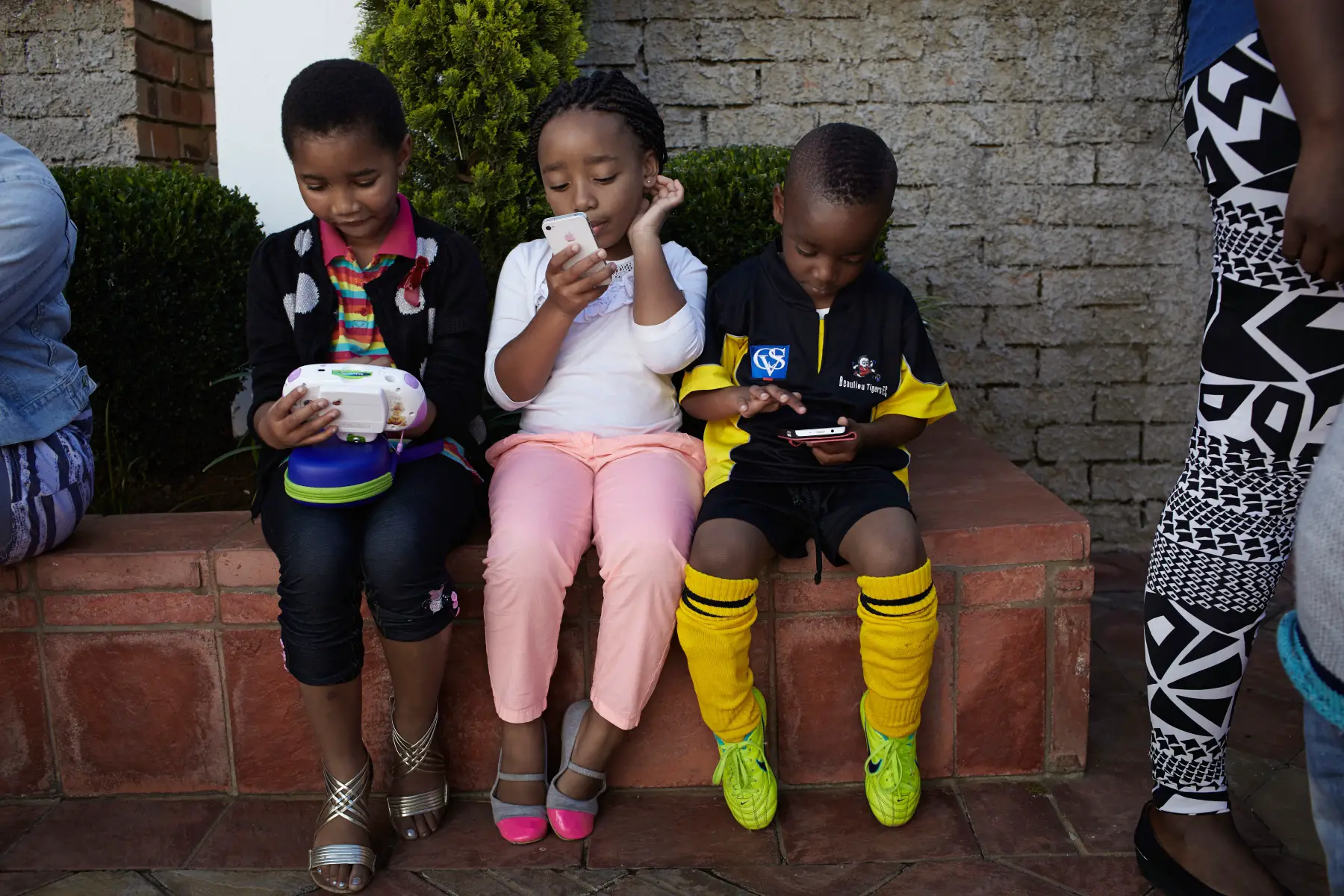
To dial out internationally from South Africa, you have to dial 00, the international code, the area code, and finally, the phone number of the person you are trying to reach. But, to dial internationally into South Africa, you would use the country’s international dialing code (27), then omit the first 0 in the 10-digit phone number you are trying to call.
Repairing a mobile phone in South Africa
If you encounter issues with your phone, you can quickly rectify this in South Africa. Generally, you will need to go to your mobile phone provider. For example, you can go to an iStore (South Africa’s official Apple retailer) or a Samsung repair center. If you got your phone through a local telco (e.g., MTN or Cell C), you should contact their support line or visit a physical shop. You can also try third-party repair services, such as weFix.
Recycling your mobile phone
Fortunately, you can recycle any old phones in South Africa. Samsung and Apple stores will take back their branded phones and recycle them; they may even offer you some store or trade-in credit. Certain stores, including weFix, will also accept phones for recycling. In addition, several companies deal specifically in recycling electronics, including mewaste, ecoATM, and Liatros.
If all else fails, go to a big mall where electronic stores have recycling bins.
Mobile phone laws in South Africa
Like in most other countries, South African laws restrict the use of mobile phones while driving. For example, you cannot even hold your phone while waiting at traffic lights. Naturally, you also cannot take photos or browse the internet.
How to complain about a mobile phone provider in South Africa
The Independent Communications Authority of South Africa (ICASA) regulates mobile phone companies in the country. If you cannot resolve issues directly with your provider, you can file a complaint with the organization. They will deal with complaints about the quality of service, network coverage, activations or transfers, billing, and more.
You need to follow these steps:
- Complain to your service provider
- Get a reference number of the complaint (for ICASA)
- If the issue is not resolved within 14 working days, lodge a complaint with ICASA (in one of three ways):
- Complete the online complaint form
- Email to [email protected]
- Send a fax to 012 568 344
You will receive a reference number within 48 hours. After this, ICASA will deal directly with the mobile company to resolve the problem.
If you don’t have a mobile phone in South Africa
While landlines are still available in South Africa, they are becoming less common. Installations can take a while, and outdated infrastructure can be unreliable.
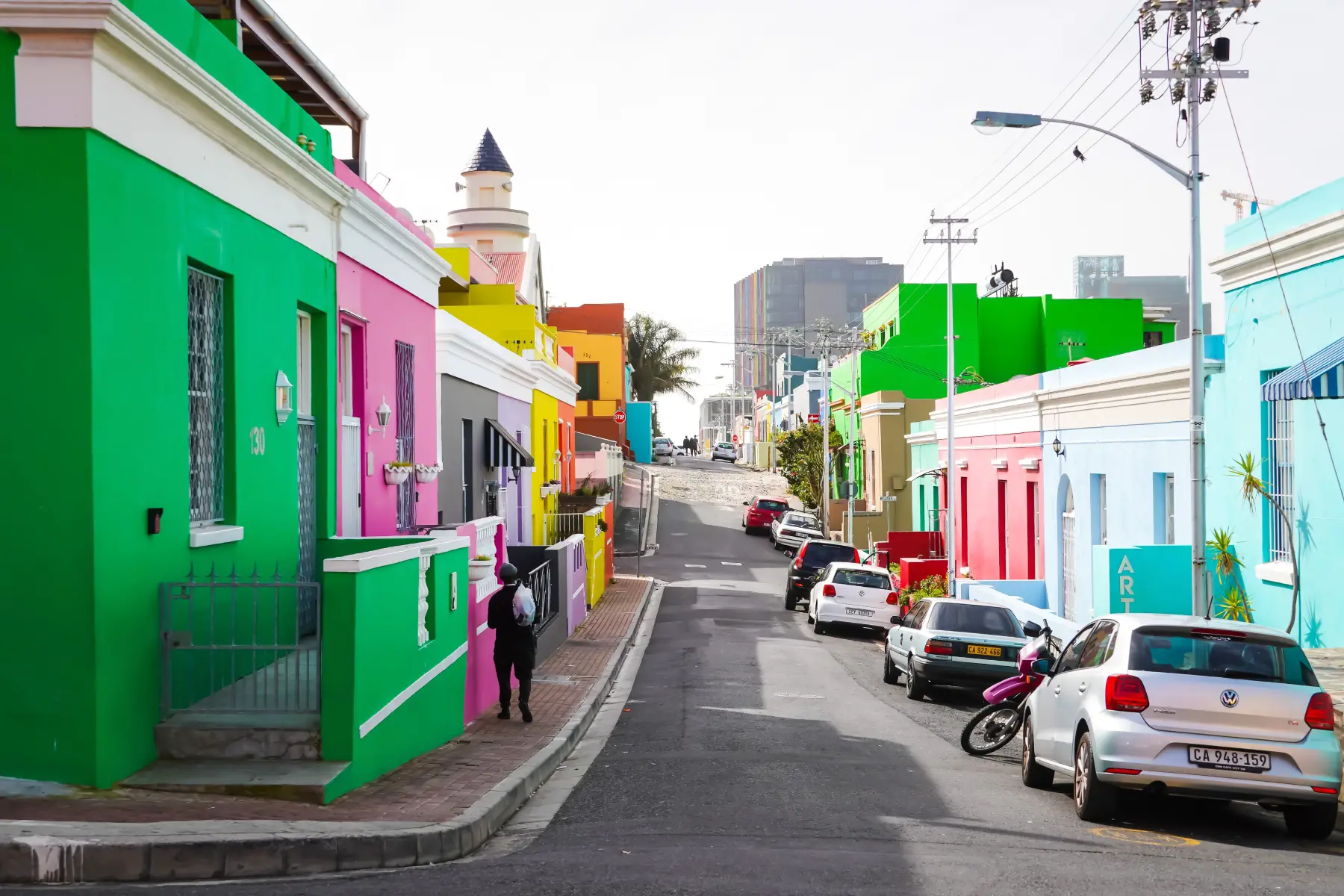
Because of this, most residents choose to have a South African mobile phone and SIM card. Still, you can connect a landline through Telkom if you prefer one. Prices begin from R200/month.
Telkom also still runs public phone booths throughout the country, though these are more readily available in urban areas. Just look for the green and blue boxes. You can use coins and pre-paid phone cards for these.
Useful resources
- Vodacom – South African mobile company, backed by Vodafone
- MTN – South African telecommunications company
- Cell C – South African mobile operator
- Telkom Mobile – the largest South African telecommunications company
- PhoneFinder – mobile phone plan comparison site
- Independent Communications Authority of South Africa (ICASA) – local communications regulatory authority


